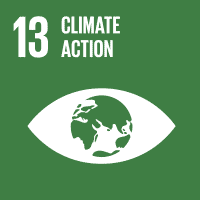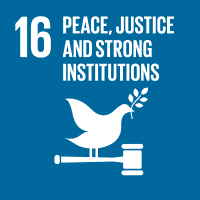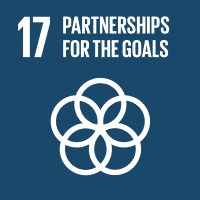has a bachelor’s degree in physics and a master’s degree in renewable energy technology, both from the University of Khartoum. The Sudanese activist has already advised UN Secretary-General António Guterres on his climate change strategy. She is currently living and working in Berlin, where she holds a Richard von Weizsäcker Fellowship at the Robert Bosch Academy.
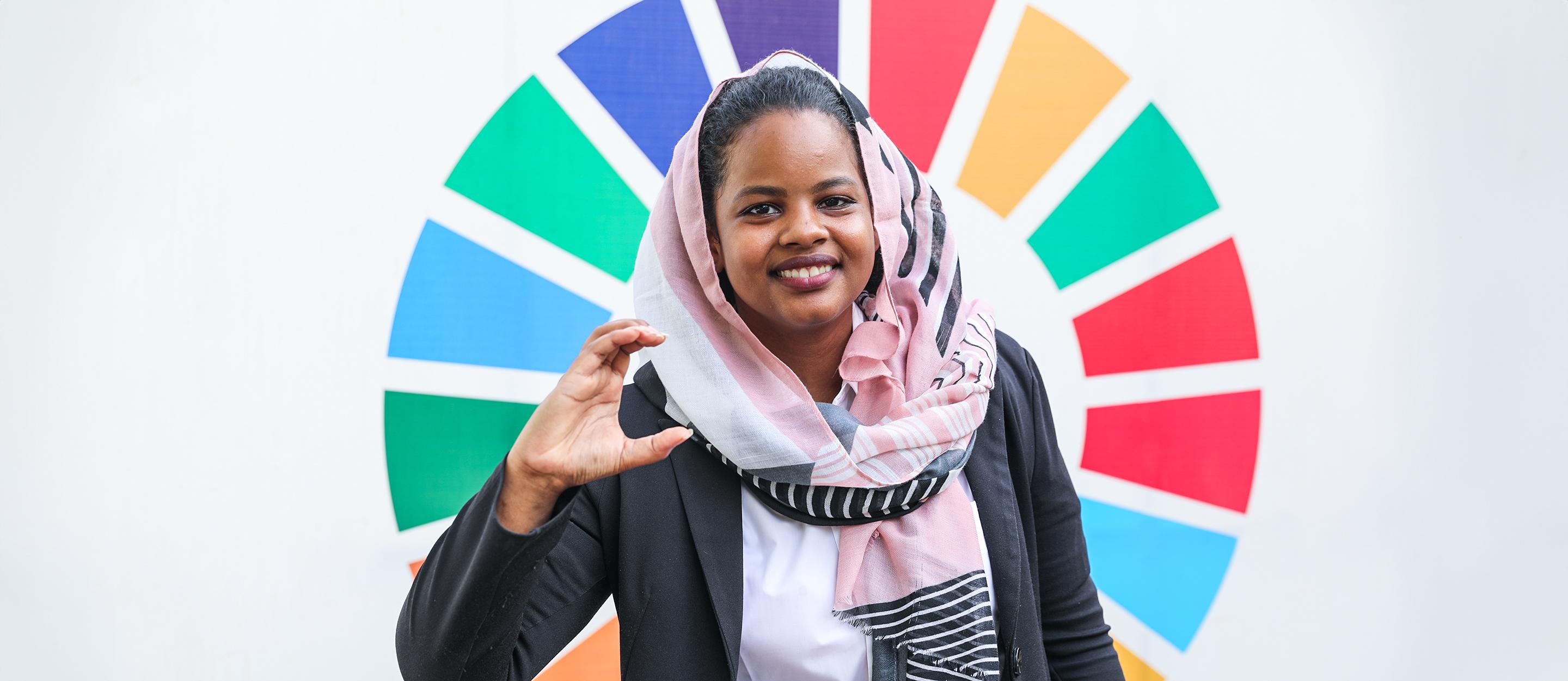 Nisreen Elsaim
Nisreen Elsaim
‘Climate change won’t wait until the war is over’
In this akzente interview, the Sudanese climate activist Nisreen Elsaim reports how she was forced to flee her home and how she continues to fight for climate justice.
Ms Elsaim, when were you last in Sudan?
I left Sudan in May 2023, six weeks after war broke out. Most of the houses were destroyed. We lost everything. I made it out of the house with only a backpack full of nappies. I have a young son. He was nine months old when we left Sudan. Most of my family had to flee too and only my brother-in-law stayed. He died two months ago, because he was sick and didn’t make it to hospital in time. That’s war. He was not the first and he will not be the last.
How does the fighting impact on your work to combat climate change?
It’s very frustrating, because nobody is talking about climate change any more in Sudan. But I know climate change won’t wait until the war is over. We expected drought last year and we were right. Sudan is now facing large-scale famine for two reasons – because of climate change, but obviously also because of the fighting. IGAD, the Intergovernmental Authority on Development, has now announced that the region can soon expect more rainfall – 27 times as much as last year. And that will mean flooding. Imagine the people who have lost their homes because of the war and are already living on the street. Streets that will soon be under water.
You have been active in the climate movement since 2012. What motivated you to get involved?
In Sudan, it became clear very early on how much climate change affects people, and that they have no protection. There is no government taking care of them. There are no strategies and no political approaches. As a young student, I wanted to use my knowledge to do something to help.
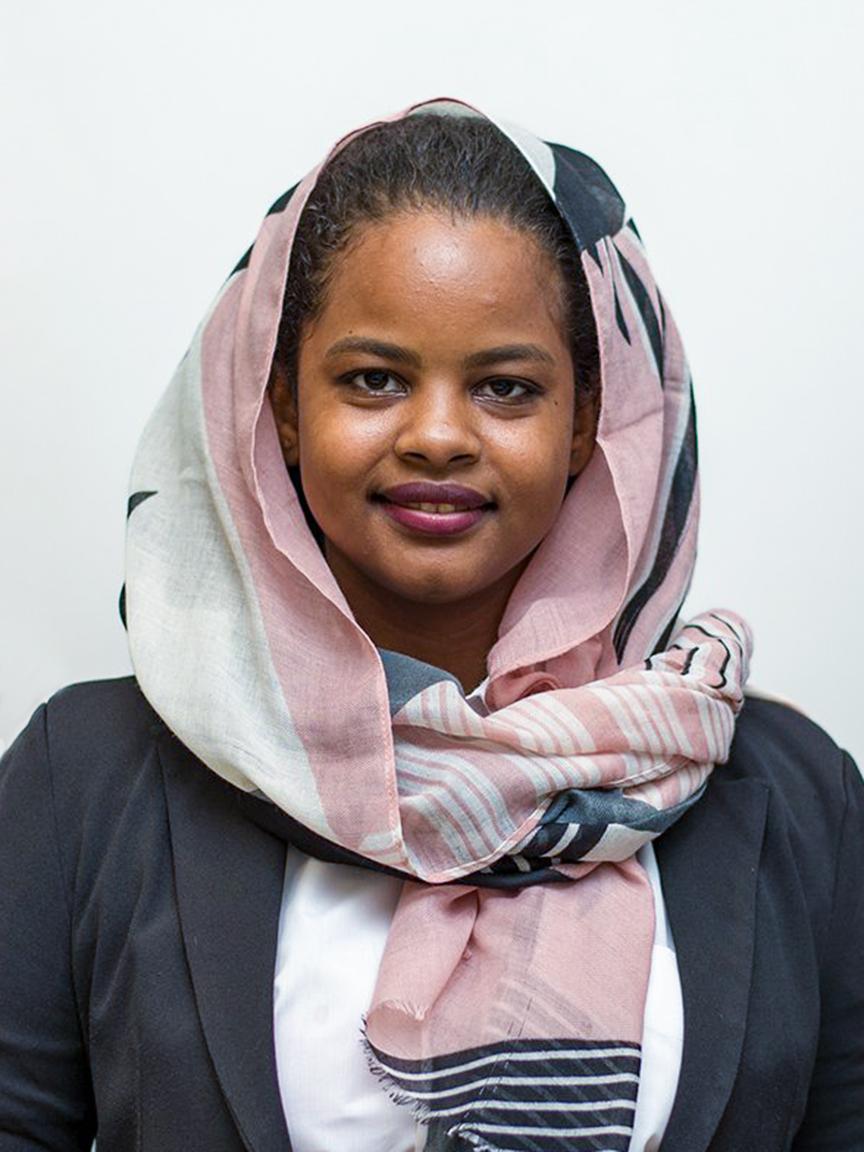 Nisreen Elsaim
Nisreen Elsaim
In your fight for climate justice, you adopt a holistic approach. What exactly does that mean?
Climate change brings so many challenges on such a massive scale that holistic solutions are needed. If we work for climate justice without factoring in social justice and human rights, there will be no real climate justice. Justice is all-encompassing. The climate, peace and security nexus is an approach that embraces all three aspects. It essentially looks at three questions: how does climate change trigger conflicts? How does it exacerbate existing conflicts and their impacts? Where does climate change force people to migrate, which in turn can trigger conflicts?
Can you give us an example?
People need water if they are to survive. Not only to drink but also for household needs, sanitation, to irrigate their fields and so on. Water security is thus a key concern for survival. Yet many places are now suffering water shortages as a result of climate change. That’s also why there are so many conflicts over water. There are ways of solving these problems. But if they are to be successful, they need reliable governance structures. That’s why I am active in very different areas. If there is no participation, if we have no strong institutions or civil society, if we have no citizen-centred policy, everything we do will be for nothing.
Hydro-diplomacy in the age of climate change
Climate-induced conflicts over water and possible ways of resolving them were the focus of the GIZ side event at the 2024 Munich Security Conference, with participants including Nisreen Elsaim and GIZ Managing Director Ingrid-Gabriela Hoven. For more than ten years now, GIZ has been fostering transboundary cooperation among riparian states along the Nile and in Central Asia on behalf of the German Federal Foreign Office and the Federal Ministry for Economic Cooperation and Development.
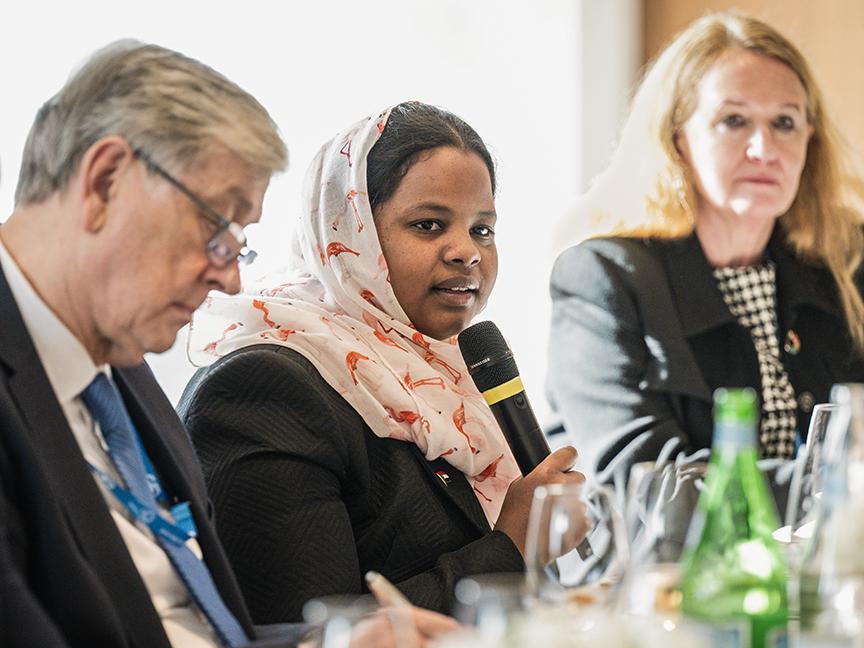 MSC/David Hecker
MSC/David Hecker
